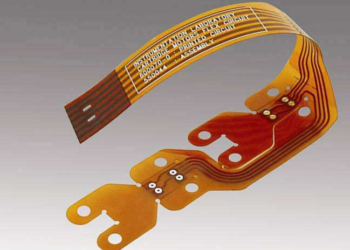In the United Kingdom, business energy is generally sold in contracts called tariffs. These are available in two primary types – fixed-rate and flexible. There are potential benefits and drawbacks to each of these. Learning more about each and comparing these pros and cons can help your business make the best decision for your budget and needs.
Fixed-Rate Business Energy Tariffs
When you choose a fixed-rate energy tariff, you lock in the price per unit of electricity or gas energy your business will purchase throughout the length of your contract. This means the price you pay – per unit – will remain constant from one billing period to the next, regardless of market fluctuations.
Benefits:
- Simplified billing. Consistent rates make billing easier for your provider. It also makes understanding and planning for bill payment easier for your company. You will never have to wonder what your bill means or why the rate is what it is.
- Certainty in budgeting. Speaking of never having to wonder, the certainty you will have in budgeting is another asset of fixed-rate energy pricing. When your business knows what to expect, you can easily and accurately predict costs and create an effective budget.
- Protection from market volatility. The energy market can be volatile. Prices can go up or down based on many factors. Having a fixed-rate energy tariff means your business is protected from these fluctuations, and your price per unit will never change unexpectedly.
Drawbacks:
- Lack of flexibility. With a lack of volatility comes a lack of flexibility. While your business might be protected from market volatility, you also cannot take advantage of potential price decreases – sometimes substantial ones. This can be very frustrating when you know other companies are paying much less per unit than you are!
- Higher initial costs. Fixed-rate contracts also may be more expensive initially than other options. Your rate will be based on long-term trends, rather than short-term. This means that while the market prices might be low at the time you start your contract, you cannot expect to take advantage of those low prices. Instead, you will pay the fixed unit price from the start.
Flexible-Rate Business Energy Tariffs
In flexible-rate or variable-rate energy tariffs, the price per unit of electricity or gas your business purchases will change from one billing period to the next. This change is based on market conditions. It also means energy prices can go up or down depending on a variety of factors, including supply, demand, natural, and even geopolitical events. (A good example of this would be natural disasters or unforeseen events like the COVID-19 pandemic.)
Benefits:
- Flexibility. In the inverse of the fixed-rate contract, flexible-rate contracts offer flexibility in pricing. That means that as the market changes, you can expect to take advantage of lower prices when costs are trending downward. You may also have more flexibility in terms of cancellation, changing your contract, and more.
- Potential cost savings. Speaking of flexibility, the potential cost savings your business can see from choosing a flexible-rate contract is a benefit that many smaller businesses find attractive. This is especially true if your needs are short-term, rather than a longer, 3–5-year contract.
Drawbacks:
- Exposure to price increases. While you can enjoy lower rates when prices are trending down, businesses with flexible-rate contracts are also vulnerable to price increases. The market can be volatile, and the potential for price increases is always something to consider – and something that can throw many businesses for a loop.
- Uncertainty in budgeting. That uncertainty is unnerving for some business owners. With the inability to accurately predict future energy prices, budgeting becomes much more difficult. For companies who are watching expenses carefully, this can be a deal-breaker.
Variations in Tariff Lengths
In the United Kingdom, many providers also offer business energy in contracts of varying lengths. These usually range from twelve months to 3-5 years, depending on the provider. Knowing your business’s needs, budget, and your management team’s preferences will help you determine which of these works best for your business.
Short-term contracts offer greater flexibility. Even if you choose a fixed-rate tariff, you can enjoy more variability in prices from a twelve-month contract than you would see from a longer tariff. As energy costs vary from year to year, even fixed-rate contracts will vary in price from one contract term to the next. This does mean that rates may go up, though, so it is important to keep that in mind. These contracts are best for businesses that are less concerned about stable pricing and more concerned about having the ability to break or change their contracts from year to year as their needs change.
Longer contract terms offer inverse benefits and drawbacks. They provide far more stable pricing, as rates stay the same or similar throughout longer terms of three or more years. However, they are often harder to alter or break. They are best suited to a company that needs reliable business energy costs for the long term, and who is not likely to need to change these terms for that same length of time.











































































